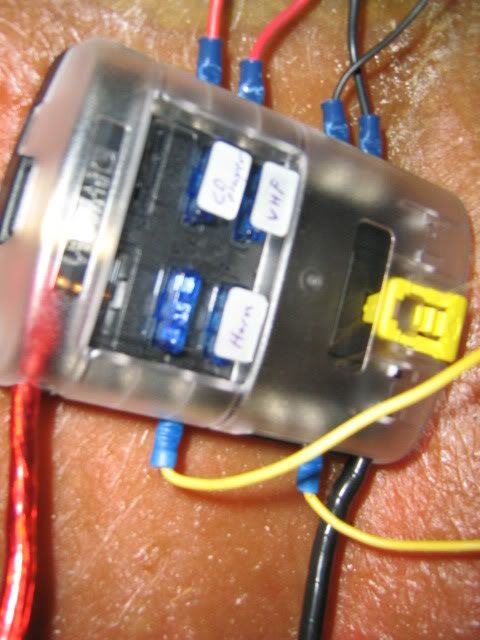Re: 12 volt fuse box.
Hello again, and once again thank you all for the help. And I didn't acknowledge NYBo for the welcome aboard, so Thank you for that. Well, I think I have everything I am going to need. I got a 10 place fuse block, heavy gauge wire for the feed, and 16 gauge for the instruments. Now I have one more question. Since I have a 10 place block, and each of my gauges are independently wired, can I wire say a couple together, then into the fuses, or would it be wise to give each one it's own fuse. That sounds a bit like overkill to me, but maybe not. And the follow-up to that is, if I wire them all to the same fuse, what size would be right? 10A, 15A?, and if I go with separate, would 5A work for each? What I am looking for is simplicity, yet functionality. If I blow a fuse, I don't want the whole thing crashing down. Does that make sense? What I have for gauges is Fuel, Temp, Tach, and one other I can't remember, possibly a volt meter.(sorry, I am at work). I then have a bow light, and a stern light, which are both simultaneously operated by a dash switch. There is a bilge pump switch, and a blower switch, push button for the horn, and lastly the three buttons for the I/O trim. I am looking at adding a 12 volt power point, possibly 2, and maybe some more running lights. There is also possibly a stereo and speakers in the future. There is a 50Amp breaker on the engine now, with a reset. I am hoping I don't need to mess with that. So, there we have it, my simple little "Wolf Run" in a nut shell.Thanks again for the help.




















